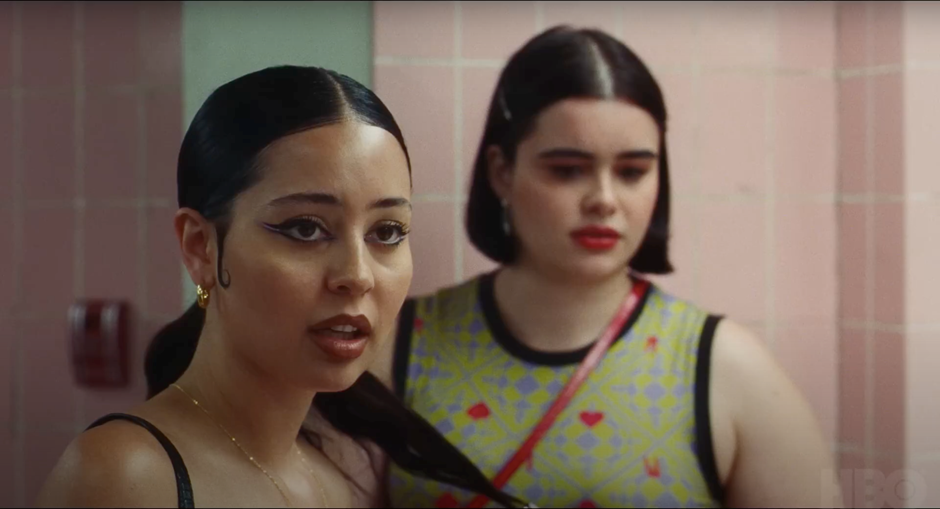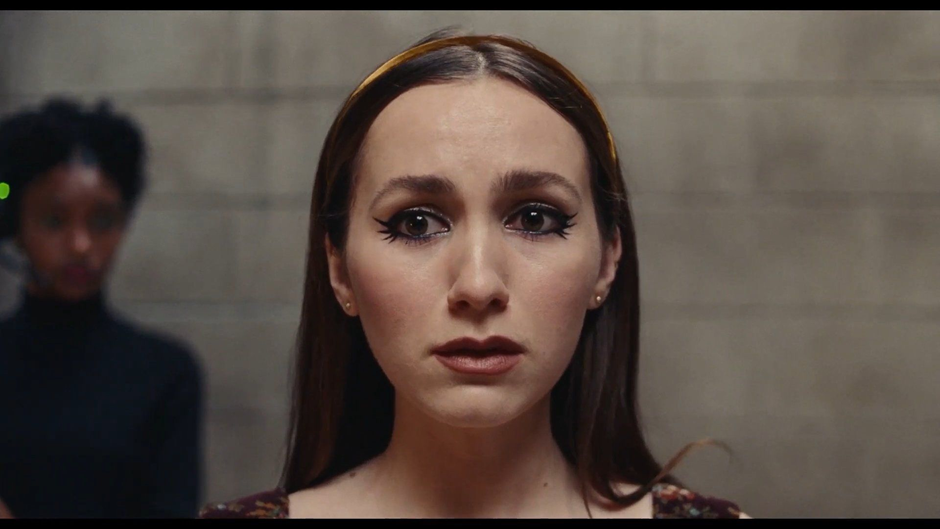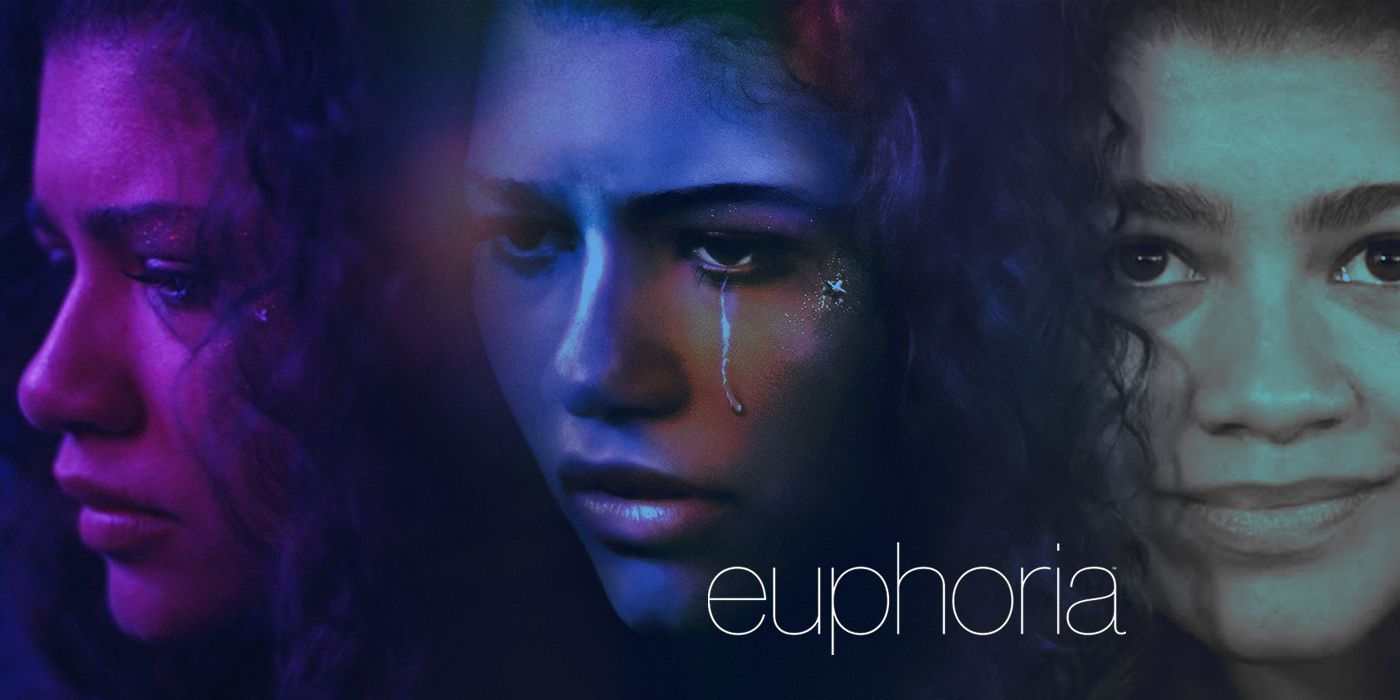By Ermioni Pavlidou,
The third season of Gen Z’s favorite teen drama was announced just before the end of its second season; a season that divided the audience in various ways. Created, written, directed, and produced by Sam Levinson, Euphoria begins as a differently staged teen drama, initially quite realistically, shedding light on multiple aspects of issues that teenagers grapple with now. It deals with gender identity, sexuality, self-image, drug abuse, and — of course — relationships. These are some of the main themes presented through the characters’ struggles in uniquely styled outfits and makeup that have created a new era of fashion trends. Euphoria’s story is a character-driven and subjective narration by one of the protagonists, Rue Bennett (Zendaya), a 16-year-old drug addict, who recounts the events and persons surrounding a definitive relationship in her high-school life with Jules Vaughn (Hunter Schafer).
Rue’s voice-over acts as a surreal yet unreliable diary that knows in a peculiar and omnipotent way things she is not supposed to. Rue and Jules’s relationship is the prime axis of the timeline in the first season, widening through the lives of the characters that frame them. Εach of these characters had a different arc that was sort of interestingly set in the first season, yet they fell victim to a safer and more commercially stereotypical course that followed with the second season. Jules, being a trans woman, did not get the time to thoroughly broach the issue of her gender identity. Although it never was a great diversion from the writing norm of a teen drama, the first season set a promise to develop certain aspects of the character that were ignored in the second season, to highlight a more conventional theme of the storyline.
So, what hindered the characters’ development in the second season? The overall problem these series had in trying to be “serious” is that the dialogues sometimes did not entirely belong to the teen characters; but plot-wise, a love triangle. We are reintroduced to Maddy Perez (Alexa Demie), drawing parallels with who she would be in the 2000’s version of the series: the mean Queen Bee with the popular boyfriend and captain of the football team, Nate Jacobs (Jacob Elordi).

Their relationship is being highlighted through the prism of the actual abuse. It is not just a toxic, on-and-off relationship that ignites gossip and drama, Nate is an abused-by-his-father abuser, whose behavior deteriorates episode by episode and whose arc with the sexuality that he does not want to accept was not explained nor developed enough later. The two are entangled in a crude circle of breakups and make-ups, in which Maddy presents symptoms of Stockholm syndrome, as she is unable to fully grasp the abuse she is put through and excuses it. According to Rue, Maddy aspires to be a trophy wife, so she will be free to spoil herself and put on the reverse of the life she sees her working-class mother having. It is her own unique style and attitude of confidence that makes the many layers of her character show. In the second season, they are dimly shown, as they are shadowed by a classic teen drama strategy: a love triangle between her, Nate, and her best friend, Cassie Howard (Sydney Sweeney).
If Cassie were a song, she would be Barbie Girl by Aqua. Cassie is the girl that has the features to be distinct for her beauty. She is the person to be envied because of her good looks and is constantly reminded that the only thing others see in her is the image of a pretty girl. The actress was treated in a similar way, having topless scenes an unnecessary number of times. Taking in the way she was treated because of her appearance, she started acting accordingly and began seeking confirmation “in a good way or a bad way”. She wanted to be loved and adored. She did things even when she did not really want to. She felt obliged to fulfill her sex appeal to the fullest. She was gaslighted into having sex with people that recorded her, even when she did not fully consent. She played into the fantasy of the role that others put out for her and forced her to adopt. “Being pretty comes with a price”, she said. Her involvement with Nate is supposedly justified by her confirmation complex but still feels both out of character and an easy plot point that was hurriedly inserted to initiate drama, which put on hold other characters’ aspects, waiting to be developed.
Other characters got bits of the recognition they deserved in the second season, like Lexi Howard (Maude Apatow) and Ethan Lewis (Austin Abrams). They were the most relatable characters for the teenage audience. Most late-bloomers in high school feel like they are diminished and overpowered by a role model, a sibling, or other classmates. These two were given, though hastily, time to shine in Lexi’s notorious play. Kat (Barbie Ferreira) was given an abrupt and inexplainable 180-degree change of character and had just one brief connecting scene addressing the self-image problems she has, that ultimately made her break up with Ethan.

A promising and fan-favorite character was Fezco (Angus Cloud), who had a powerful backstory reveal introduction, with a “drug-dealing legacy” in the first episode of the latest season and a promising start of a relationship with Lexi. The two were given a feel-good and comforting beginning in a romantic story, though not enough time. However compatible these two were and their few scenes were the best part of the season, this relationship was doomed from the beginning, because of Fez’s drug-dealing complications.
Lastly, the characters whose arc remained stagnant, and were only attempted at a quick and superficial reading to explain them, were the Jacobs men. Cal Jacobs (Eric Dane) came out as pansexual and, with a sob story flashback of his teenage unfulfilled love, the series tried to explain him hating, abusing, and raising an angry son, Nate, who could not come to terms with his sexuality nor being as dangerous as he is. Now, said son was an empty page on this season.
There is no depth in the character presented at the scenes — at least most of the time; it seemed like the easily most hated character of the first season was substituted by a half-connected wire of an arc that sometimes-resembled Nate Jacobs and others just an imitation of him. It was a very quick attempt at showing and explaining the characters, which felt forced and was not successful.
References
- ‘Euphoria’ Season 2 Review: Bloody Penises, Drug Binges, and Heart Attacks, rollingstone.com, Available here
- How did Euphoria become the most loved and hated show on TV?, theguardian.com, Available here
- ‘Euphoria’ Review: Zendaya’s HBO Series Is a Teens-in-Crisis Horror Show, indiewire.com, Available here




